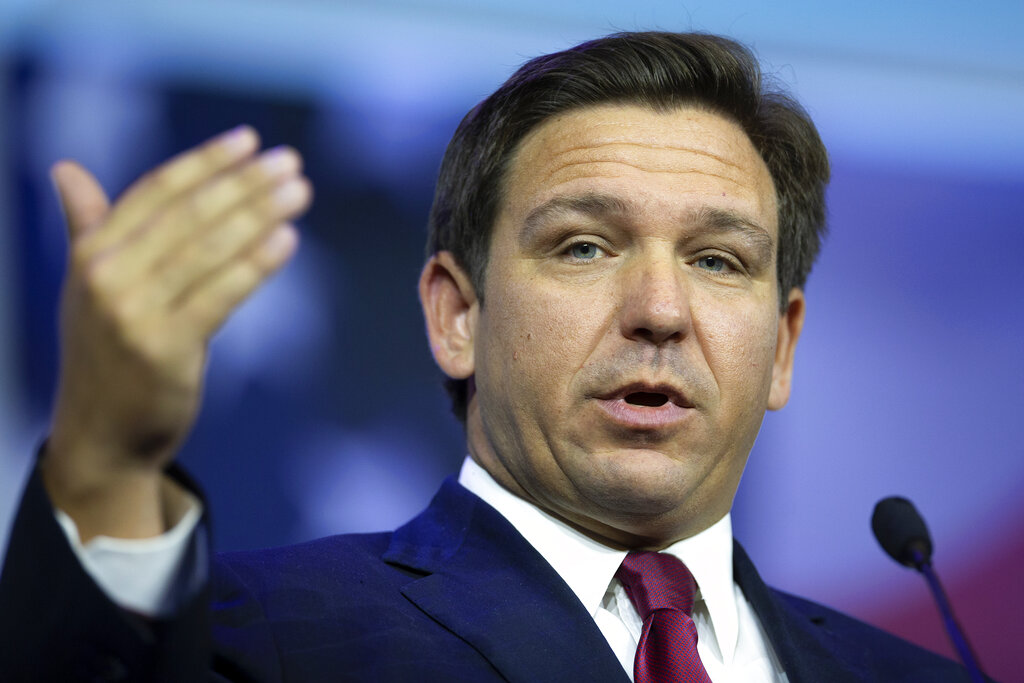After the White House on Friday announced tariffs of 25% on goods from Mexico and Canada, and 10% on China, Mexico's president said Monday her government will deploy troops to the U.S.-Mexico border, The Associated Press reported.
In a social media post, Trump described a "very friendly conversation" with President Claudia Sheinbaum (pictured below) over using Mexican soldiers to stop the flow of fentanyl and illegal immigrants into the U.S.
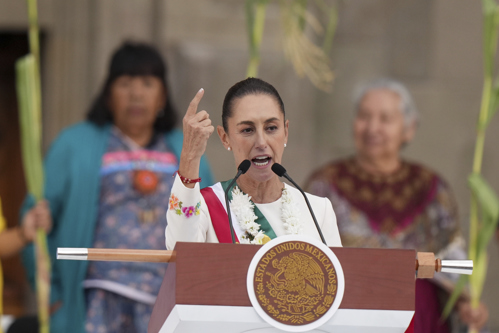 Those tariffs are scheduled to go into effect on Tuesday but the Mexico tariff has now been paused for one month, Trump said.
Those tariffs are scheduled to go into effect on Tuesday but the Mexico tariff has now been paused for one month, Trump said.
Trump’s mass deportation plan has gotten a lot of news coverage but tariffs are another way of tackling border problems that exist not only in the south.
The tariffs are in response to “illegal fentanyl they have sourced and allowed to distribute into our country, which has killed tens of millions of Americans,” White House Press Secretary Caroline Leavitt said last week in a briefing with reporters.
Canadian Prime Minister Justin Trudeau said Friday that his country is ready with a “purposeful, forceful but reasonable, immediate response.”
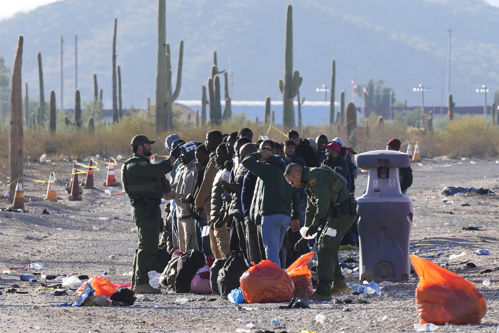 Democrats who presided over increased costs of gas and groceries during Joe Biden’s administration have expressed concerned for American consumers.
Democrats who presided over increased costs of gas and groceries during Joe Biden’s administration have expressed concerned for American consumers.
"If these tariffs go into full effect, they will raise prices for everything from groceries, to cars, to gas, making it even harder for middle-class families to just get by,” Sen. Minority Leader Chuck Schumer said.
Mexico is the obvious offender in any border conversation. In fiscal year 2024, U.S. Customs and Border Protection (CBP) seized 21,148 pounds of fentanyl at the southern border, mostly smuggled from Mexico.
At the same time, data from the Canada Border Services Agency (CBSA) shows that 17.6 pounds of fentanyl was smuggled from Canada to the U.S. while 10.8 pounds was smuggled from the U.S. into Canada.
Tariffs negotiation tool to score 'wins'
The tariffs are not all about the border and have other benefits, Richard Stern, an economic analyst at The Heritage Foundation, said on Washington Watch last Friday.
Beyond the borders, Stern told show host Jody Hice that tariffs can help in unfair trade agreements that Trump says are not favorable to the U.S. In some instances, another country might close its markets to U.S. manufacturers. Another country may copy U.S. products in violation of patent laws.
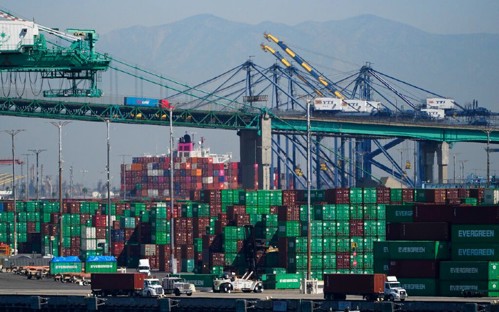 “So you can use tariffs, obviously, to try and negotiate to get wins there, to open up their markets, to get them to follow our IP and patent law,” he said.
“So you can use tariffs, obviously, to try and negotiate to get wins there, to open up their markets, to get them to follow our IP and patent law,” he said.
The problem with U.S.-imposed tariffs from the U.S. perspective, Stern advised, is comparing the U.S. tax system with how other governments tax their citizens.
“The way our tax system works is it actually subsidizes foreign production coming into the United States and actually double taxes, in many cases, U.S. production," Stern said. "We could fix that by changing our tax system, but it’s a problem of a combination of the two."
A better way to tax imports
Stern is a a former Capitol Hill staffer for the Republican Study Committee. He spent years studying the federal budget and spending before joining Heritage.
He told Washington Watch the U.S. could address the imbalance with a border-adjusted tax system, Stern said. This system creates a tax on goods based on where they’re consumed rather than where they’re produced.
Basically, goods would face a U.S. tax when they are imported, not when they’re exported.

“Doing that would appreciate the value of the dollar. It strengthens America's position, and it gets rid of that imbalance where we don't tax imports coming in but do tax and double tax our production and certainly our production that gets exported. So, using that kind of a tariff-like mechanism corrects that problem,” Stern said.
Using tariffs to negotiate with other countries is not without risk, but there may be greater risk in letting failed border policy stand.
“Canada and Mexico have, frankly, been working to help the Chinese to flood fentanyl to the country. Mexico has famously done almost nothing to help us secure the border. They've actually encouraged those illegal incursions to the U.S. Canada has also been complicit in violations of our borders,” Stern said.
Often, a bad business deal with another country could result when business leaders in another country have too much influence in their own country’s politics.
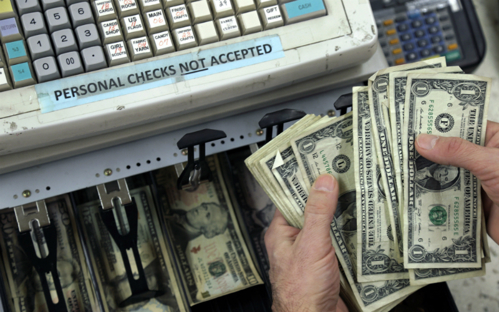 “Oftentimes it's foreign business special interests who have controlled their legislatures who are the ones that take advantage of these trade deals. The tariffs he's talking about then strike at the heart of businesses abroad that have regulatory capture of their own government,” Stern said.
“Oftentimes it's foreign business special interests who have controlled their legislatures who are the ones that take advantage of these trade deals. The tariffs he's talking about then strike at the heart of businesses abroad that have regulatory capture of their own government,” Stern said.
The short-term disruption Americans may feel could be offset in their own tax bill if Trump uses income from the tariffs to cover the deficits from cutting taxes on income, small businesses and other areas.
“If you look at numbers even from the Tax Foundation, who have been critical of the tariffs, their numbers would still tell you that if you use those revenues to cut other taxes that would stimulate the U.S. economy, you can get a 5 or 6 to 1 ratio of new dollars of economic creation to dollars lost because of the tariffs directly. So that swap is a very powerful thing for the U.S. economy,” Stern said.
Some early success with tariffs
The threat of tariffs has already worked for Trump in the short time of his second term when the Colombian president quickly changed his position in accepting the citizens being returned to his country.
Trump told President Gustavo Petro his country would face a 25% tariff on all incoming goods to be raised to 50% in one week.
“They’ve already worked. I mean, famously, between two rounds of golf, he was able to get Colombia to actually take back the terrorist drug runners that they've illegally smuggled here,” Stern said.



